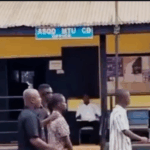
Ace Anan Ankomah, Senior Partner | Head, Disputes Department, Bentsi-Enchill, Letsa & Ankomah
‘All of Ghana’s problems require three things to solve: capital, technology and political will. The first two are available in abundance in this world; it is the political will to do things right that we lack.’ – Yaw Benneh-Amponsah (2025)
Our ancestors mined and traded gold long before Europeans arrived here. The abundance was such that the Portuguese renamed Anomansa Elmina (‘The Mine’) and the British called our land the Gold Coast.
Formal colonialism, however, came with a colonial coup by law: mining became restricted to those with both the means and the literacy to navigate colonial regulations. This legal sleight stripped us of our ancestral right to mine. Only foreigners and the colonial government could lawfully mine. All indigenous mining became ‘illegal,’ and the little they could ‘gather and sell’ gave birth to the original term ‘Galamsey.’
Post-independence: Deepening chains
After independence, instead of undoing that injustice, we entrenched it in other ways. The current state of the law limits state interest in private mining to a paltry 10 per cent carried stake, and collecting royalties and taxes, while others (mostly foreign interests) reap the wealth. When state-owned mines were sold <\a> mostly to foreign interests <\a> we became spectators of our own resources: landlords living as tenants. Pause a moment and let this reality sink in: we could not successfully manage a single 100 per cent state-owned gold mine.
The 1986 Small-Scale Gold Mining Law (PNDCL 218) reluctantly recognised small-scale miners but kept them trapped in a legal grey zone: tolerated yet criminalised. We continued to institutionalise our own exclusion.
When lawbreakers were regulators
The current Constitution introduced article 268, requiring prior parliamentary ratification for any agreement to exploit natural resources. The Supreme Court later affirmed that unratified agreements were void. The intent was simple: ensure MPs knew who was mining in their constituencies so that they could involve local people and chiefs in oversight.
Yet from 1993 to 2017, successive Ministers for Lands and Natural Resources issued several mining leases and licences (both small- and large-scale) without parliamentary approval. Entire operations commenced in open defiance of the Constitution. This was not mere neglect; it was criminal recklessness by those sworn to uphold the law.
Law without enforcement: Birth of Galamsey-On-Steroids
By law, small-scale mining licences legally expire after five years; but renewals were ignored. Rules on mercury and cyanide use existed on paper; enforcement did not exist at all. Worse, licensed miners expanded into unlicensed zones, and others mined without licences altogether, under the watch of regulators who looked away.
Thus, the current Galamsey-on-Steroids was not necessarily born of ignorance or even poverty, but of official negligence, political cowardice and complicity.
Forgotten (ignored?) blueprint
In 2015, the Minerals Commission produced a 53-page Artisanal & Small-Scale Mining (ASM) Framework, a sound, detailed plan for reform. It provided everything: regulation, supervision and community participation. Government did next to nothing with it, and the document gathered dust, more cited abroad in academic work, than in Ghana.
In 2017, after a government moratorium on small-scale mining, OccupyGhana exposed the constitutional illegality of unratified licences and demanded an audit. The revelation made headlines but prompted no corrective action. The Minerals Commission even had the temerity to ask Parliament to waive the constitutional requirement; Parliament refused.
Yet in 2018, the moratorium was lifted under claims of a ‘new framework,’ likely a rebranding of the ignored 2015 document. Then, in the quiet of the 2020 election season, Parliament retroactively ratified all the previously illegal licences and leases, effectively legalising years of unconstitutional activity. These acts deepened the rot, discredited the Legislature and weakened the Executive.
Not ignorance
We know what to do; we simply refuse to do it. The 2006 Minerals and Mining Act and the 2015 ASM Framework provide a world-class blueprint. Every government since 1993 has vowed to end Galamsey, and failed.
The cycle is familiar: bold declarations followed by compromise, silence and surrender. Galamsey has survived and morphed into this hydra-headed Galamsey-On-Steroids mutant monster because it knows that in Ghana, political resolve is temporary, negotiable and often transactional.
Gold, poverty cannot coexist
At the 2025 Ghana Academy of Arts and Sciences Forum on Galamsey Revisited, I argued: ‘Gold and poverty cannot exist peacefully in the same environment; the environment becomes the casualty.’
There is little in Ghana that reflects a century of gold wealth. Galamsey has now turned the blessing of the abundance of gold into a curse: poisoned rivers, devastated forests, impoverished communities. The paradox is cruel: we sit on gold but live in mud.
I have also argued that ‘nations develop through brains, not [natural] resources.’ In this case, we have both the intelligence that produced good laws and frameworks, and the natural wealth itself. What we lack is courage: courage to reject political expediency, to prosecute powerful sponsors of illegal mining and to uphold the law without fear or favour.
What must be done and can be done
The solutions are not mysterious; they exist already. The Minerals Commission has mapped every gold-bearing area. What remains is enforcement:
Declare all rivers and forest reserves off-limits to mining; no exceptions. Designate lawful mining zones and issue traceable, monitored licences and leases. Deploy University of Mines and Technology (UMaT)-trained professionals for supervision.
Enforce penalties for breaches, and hold public officials criminally liable for negligence or complicity. Use some of the income from gold to restore the land after mining operations. These require no new laws, just the political will to apply existing ones.
Why political will matters
Political will means the government is prepared to lose votes rather than compromise the law. It means ministers who act even when their party financiers are involved. It means a Parliament that refuses to rubber-stamp illegality.
Galamsey is not a technical problem; it is a political choice. Successive governments have chosen convenience over courage, privilege over principle.
Call to courage if it’s not too late already
The current administration still has a chance to break this cycle. It can either confront the entrenched interests behind Galamsey or join the hall of shame that stretches from 1993 to today. As I wrote in Beyond the Fight Against Galamsey <\a> Fixing the Regulation Gap (2021):
‘Properly regulated and supervised, artisanal mining could transform Ghana’s economy. We already have a world-beater of a legal blueprint. What we need is a world-beater of a government, one that enforces it without fear or favour.’
That call still stands and applies with more strength and force, because we have tried everything but the law and common sense. Until leadership finds the courage to act, Galamsey will keep winning, not because it is stronger, but because our leaders are weaker in mind, in word and in deed.
The writer is Senior Partner | Head, Disputes Department,
Bentsi-Enchill, Letsa & Ankomah.
DISCLAIMER: The Views, Comments, Opinions, Contributions and Statements made by Readers and Contributors on this platform do not necessarily represent the views or policy of Multimedia Group Limited.
DISCLAIMER: The Views, Comments, Opinions, Contributions and Statements made by Readers and Contributors on this platform do not necessarily represent the views or policy of Multimedia Group Limited.
- President Commissions 36.5 Million Dollars Hospital In The Tain District
- You Will Not Go Free For Killing An Hard Working MP – Akufo-Addo To MP’s Killer
- I Will Lead You To Victory – Ato Forson Assures NDC Supporters
Visit Our Social Media for More



